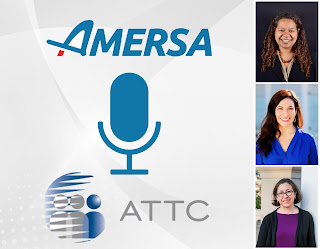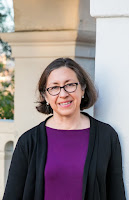The AMERSA Board of Directors (BOD) proposes an initial set of strategies to promote diversity, equity, and inclusion using a framework that speaks to four key AMERSA experiences: engagement, education, mentorship, and leadership. Please join Dr. Holly Hagle, Marlene Martin, and Miriam Komaromy in this podcast for a discussion on how AMERSA commits to promoting equity and inclusion to dismantle the individual, institutional, and structural racism that has pervaded the United States for centuries. Through these actions we stand in solidarity with BIPoC and all persons who use substances across the spectrum of harm reduction, prevention, intervention, treatment, and recovery; committing to promoting equity and inclusion. The AMERSA BOD cannot achieve this alone. We invite our members to join us in building an inclusive, multidisciplinary professional society equitable for all. Please visit us at AMERSA.org
Holly Hagle, Ph.D. is an Assistant Research Professor at the Collaborative to Advance Health Services, at the University of Missouri-Kansas City’s School of Nursing and Health Studies. Dr. Hagle is a proven leader and educator with over 18 years’ experience developing educational programming, curricula for traditional face-to-face and online education, supervision of staff and consultants, and the management of multi-million dollar federal grant budgets. She is the Co-Director of the National Addiction Technology Transfer Center (ATTC) Network Coordinating Office (NCO) and Principal Investigator (PI) for the Prevention Technology Transfer Center (PTTC) NCO. In addition, she is the UMKC PI, and Co-Director on behalf of the ATTC Network for the Opioid State Targeted Response Technical Assistance (STR-TA) grant. Dr. Hagle has been actively working with medical and behavioral health providers for more than 20 years on the integration of behavioral health interventions, including educational programming on intercultural sensitivity. Her area of expertise is in adolescent co-occurring disorders, screening, brief intervention, and referral to treatment, and the application of evidence-based practices in community settings with a special focus on qualitative research methods.
Marlene Martin, MD, is an Assistant Clinical Professor at UCSF and a hospitalist at San Francisco General Hospital. She is driven to improve care for populations in the safety net.
Marlene was born and raised in Los Angeles and is a first-generation college graduate. She attended college and medical school at Stanford prior to completing Internal Medicine residency at UCSF. Her bilingual and bicultural Mexican immigrant background influenced her to serve socially oppressed populations.
Marlene is board certified in addiction medicine and founded and directs the Addiction Care Team, a novel interprofessional consult service that delivers compassionate, evidence-based care for hospitalized people with unhealthy substance use. She is interested in alcohol use disorders among LatinX populations as well as eliminating the inequities faced by persons with substance use disorders.
Dr. Miriam Komaromy is an addiction medicine physician who is medical director of the Grayken Center for Addiction at Boston Medical Center, where her work focuses on all aspects of substance use disorders and the intersection between addiction and health equity. In the past she led the development of the ECHO model for education of clinical teams about how to treat substance use disorders in primary care. She currently leads a federally-funded program studying the best way to treat co-occurring addiction and mental health disorders in primary care settings.





No comments:
Post a Comment